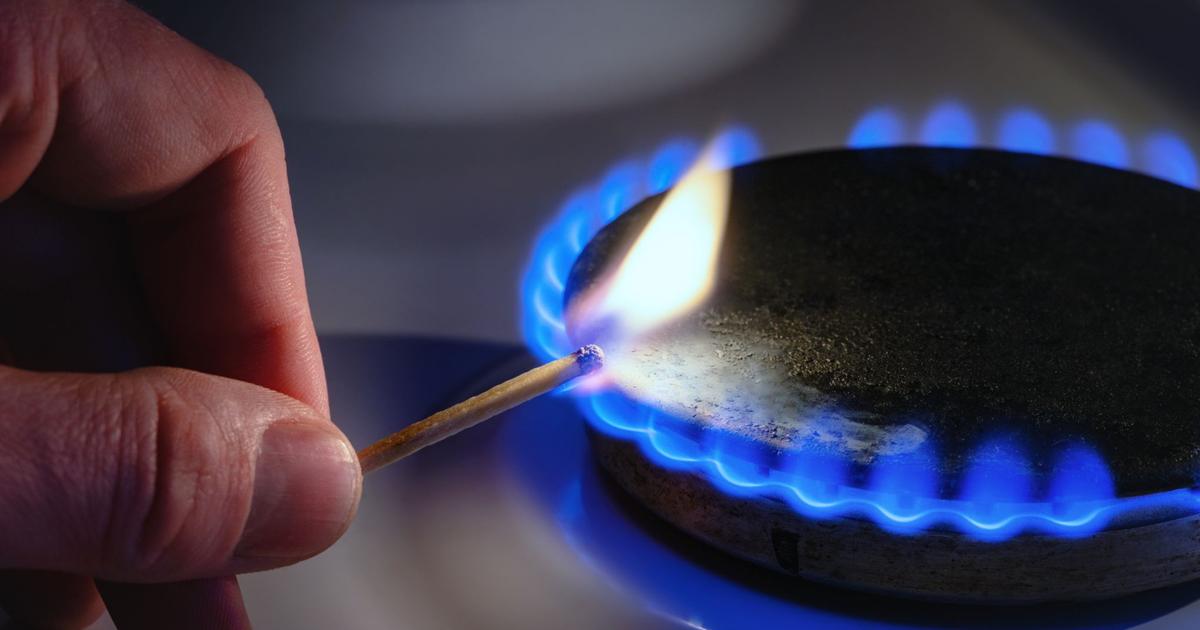Gas prices have risen drastically in some cases over the past year.
But now wholesale prices are falling again.
When will this reach consumers?
Düsseldorf/Berlin - Many gas suppliers got the tariffs right last year.
The companies cited “increased procurement costs” as justification.
In fact, wholesale natural gas prices rose significantly after the Russian invasion of Ukraine.
Many households and corporate customers have felt this through sometimes drastic tariff increases.
But wholesale prices have been slipping since mid-December.
Many customers are now asking themselves: will the falling procurement costs also be passed on?
And if yes: when?
An overview.
How do suppliers actually come up with their end customer prices?
The gas price has three components: taxes and levies, network charges, and procurement and sales.
Municipal utilities and other suppliers buy the gas from large importers such as Uniper or on special exchanges.
Gas is traded there on the spot market and can be delivered in one to two days.
"On the futures market, on the other hand, supply contracts with a term of up to six years are concluded," according to the Federal Association of Energy and Water Industries (BDEW).
For the public utilities, however, the listings on short-term markets only play a subordinate role in procurement, as the industry association VKU emphasizes.
The companies bought energy continuously, explains a spokesman.
Expected future energy requirements are purchased in many small quantities at different points in time, usually up to three years in advance.
As a result, the average prices even out over the long term.
How have wholesale prices developed recently?
Wholesale prices have recently fallen significantly.
According to BDEW, wholesale prices on the futures market in 2022 averaged EUR 117 per megawatt hour.
For a few weeks they have fallen to around 70 euros.
"However, the wholesale prices are still almost four times as high as before the crisis years," emphasizes the industry association.
"On average from 2015 to 2019, the average wholesale gas price was around 18.50 euros per megawatt hour."
Why have prices gone down?
The gas market expert Fabian Huneke from the consulting company Energy Brainpool sees the reasons for the lower prices in a combination of a mild winter and higher gas savings than expected.
This has shown: "It can also be done without Russian gas".
As a result, European gas storage facilities are fuller than usual at this time.
"The specter of the gas shortage has lost its horror."
How have consumer prices developed?
According to BDEW, the average natural gas price for households in multi-family houses was 19.8 cents per kilowatt hour in the fourth quarter of 2022, and 20.0 cents for single-family houses.
According to the comparison portal Verivox, a kilowatt hour of gas for new customers currently costs an average of 11.8 cents.
What are the providers saying?
The energy industry emphasizes that wholesale prices do not have a direct impact on end customer prices because of the long-term procurement strategies.
"Last year, customers benefited from this long-term procurement," says Kerstin Andreae, Chair of the Executive Board of the Federal Association of Energy and Water Industries (BDEW).
The suppliers' strategy smooths out the developments on the energy exchanges and protects customers from sharp price jumps.
"However, this also means that the temporarily lower purchase price will only affect end customer prices later."
What do consumer advocates advise?
According to Udo Sieverding, energy expert at the North Rhine-Westphalia Consumer Advice Centre, household customers who are still receiving increases announced in the coming weeks can consider changing tariffs or providers.
He refers to the comparison portals, in which prices can now be found again that are below the temporarily cheaper basic service tariffs.
"Looking into the portals can be worthwhile," he says.
However, it can be observed that many customers initially wanted to stay with their municipal utilities or other basic suppliers who had accepted them at the time after sudden terminations by energy discounters.
Sieverding calls this "very understandable": Knowing about the gas price brake, which caps 80 percent of previous consumption to 12 cents, these customers would often stay with their previous providers.
How will wholesale prices develop in the future?
"What happens next this year depends primarily on the weather during the rest of the heating season," says gas market expert Huneke.
"If the rest of the winter allows us not to need most of the gas that we have just stored, there could be a summer slump in prices." cold winters cannot be afforded in Europe next winter either.
The risk of an expensive gas shortage in the next winter is still there, but has dropped significantly.
Huneke does not see a clearly falling price trend until 2025.
(dpa/utz)











